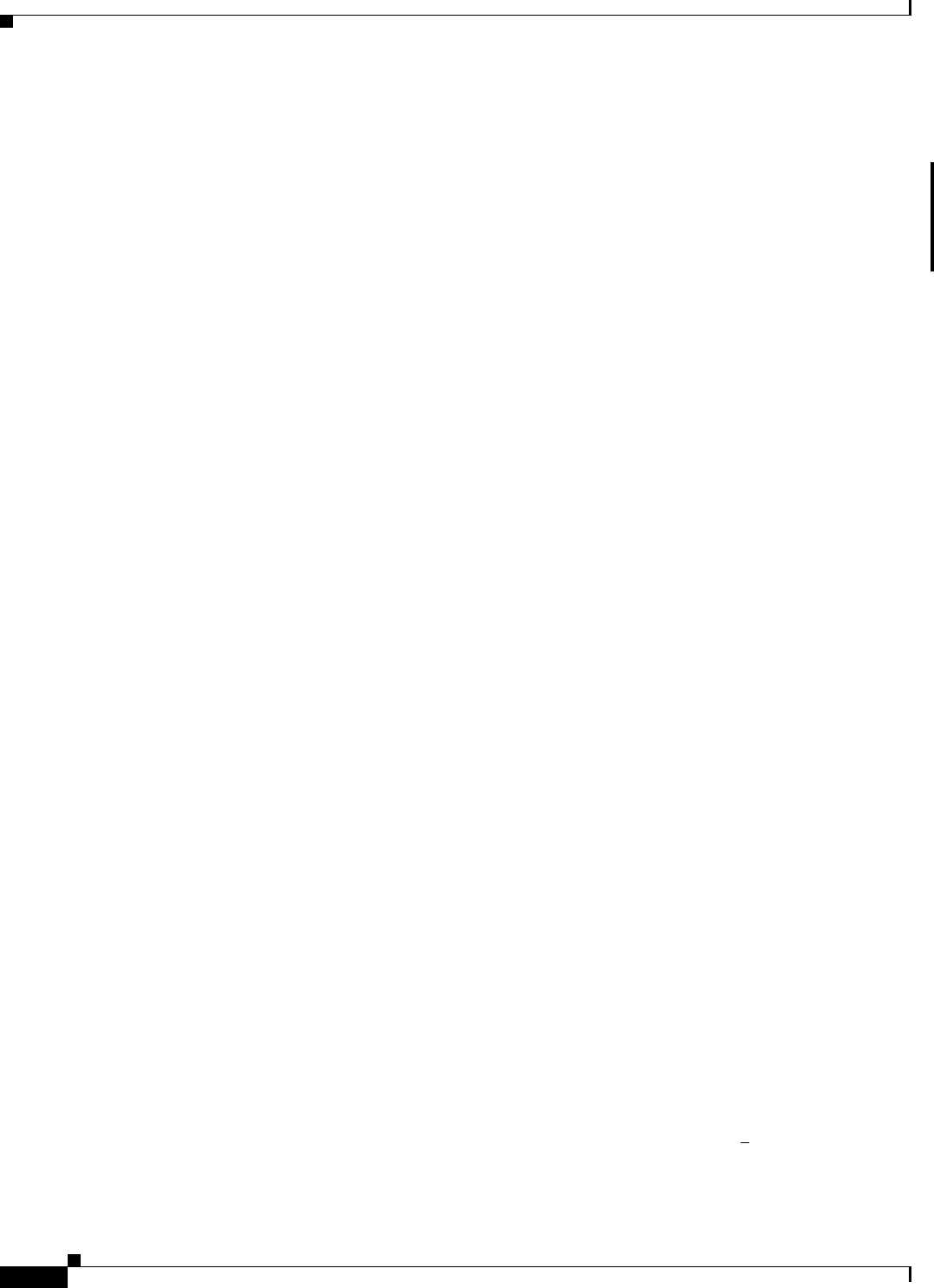
1-12
FAQ and Troubleshooting Guide for the CiscoWorks Wireless LAN Solution Engine
OL-8376-01
Chapter 1 FAQs and Troubleshooting
Faults FAQs and Troubleshooting
b. Change the Fault History Truncation Interval parameter to reduce the number of days the
cleared faults are saved.
Q.
Why didn’t the fault color on the device tree change (it remains red) after I Acknowledged a P1 fault
on an AP?
A.
When you Acknowledge existing fault(s) for a device, the corresponding fault color (red for P1 and
P2 severity faults; orange for P3, P4, and P5 severity faults) for that device in the Reports section of
the WLSE does not change.
Q.
What traps are sent from the WLSE?
A.
Traps are sent based on fault policy and threshold settings on the WLSE. The WLSE only sends out
v2c traps, so make sure your trap listener is configured to accept v2c traps.
Solaris 2.8- based NetView 7.1 receives and displays the SNMP v2c fault notification traps from
WLSE, but Windows-based NetView 7.1 supports only v1 traps and cannot receive and display any
v2c traps from the WLSE.
Q.
What traps are received by the WLSE?
A.
The WLSE is able to receive SNMP traps about two policies from access points rather than having
to poll the access point for the information: RF Port Status and RF Port Admin Status. If the WLSE
is enabled to receive the traps, the poll interval for these policies can be increased, which reduces
the load on the WLSE, and allows faster processing of the faults when they do occur. To enable traps
sent to the WLSE, select Configure > Templates > IOS > Services > SNMP.
Q.
What information is emailed in a fault notification?
A.
For a description see the online help.
Q.
Does a MIB or trap definition file exist for the WLSE?
A.
Yes, from the Cisco.com download site, download MIB
CISCO-DEVICE-EXCEPTION-REPORTING-MIB.my and load it into the trap receiver.
Q.
Why I am not receiving any email fault notifications for low priority faults?
A.
No email notification is sent for lower priority faults if higher priority faults already exists for that
fault.
Q.
After I change the refresh rate in the Display Faults screen, why does it revert back to the default of
300 seconds when I log out, then log back in again?
A.
Changes to the refresh timer are applied only to a particular session. This is done by design.
Q.
Why is a fault that is set to one priority level reported as a different priority level?
A.
When more than one fault is reported against a device, the fault priorities are aggregated, and the
maximum priority of all the active faults for that device is displayed. For example, if the device has
a P1, a P2, and a P3 fault against it, only the P1 is displayed in the Severity column. However, when
you click on the Description for that fault, all three priorities are displayed with an explanation for
each.
Q.
If I have a large number of access points, 1,000 or more, will increasing the polling cycles for
policies that report traps to the WLSE enable faster processing of the faults?
